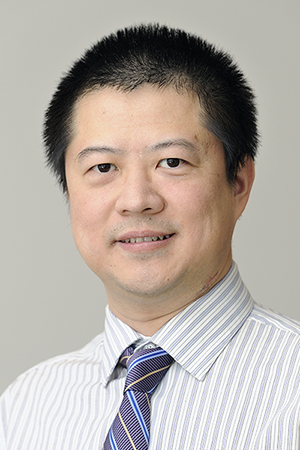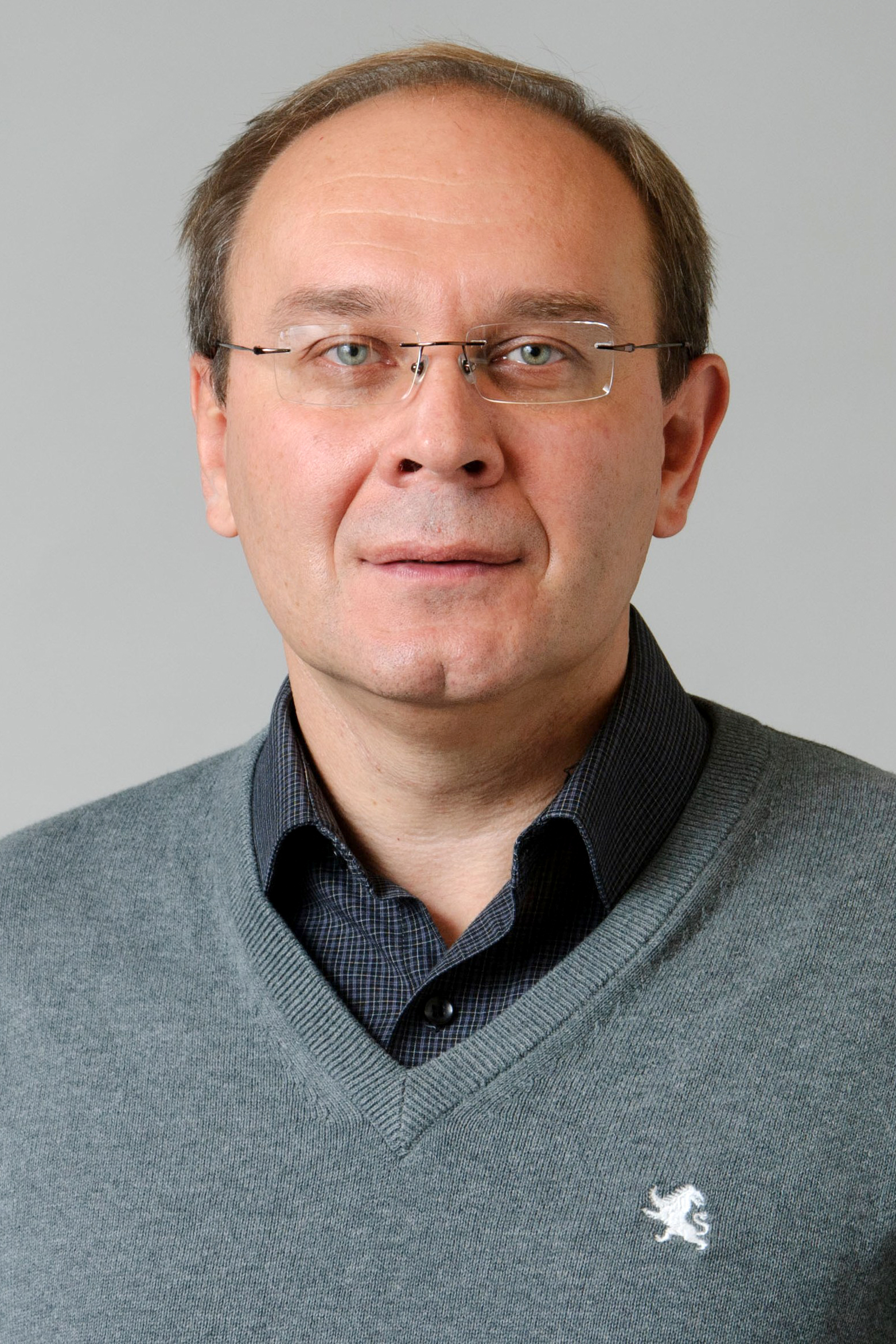Congratulations to Dr. Tianbo Liu and Dr. Andrey Dobrynin who have both recently received awards from the National Science Foundation (NSF).
 Dr. Liu, Department of Polymer Science Chair and A. Schulman Professor, was awarded a $460,000 grant for his project, “Exploring the contributions of multiple physical forces towards the self-assembly of complex macroions in solution.”
Dr. Liu, Department of Polymer Science Chair and A. Schulman Professor, was awarded a $460,000 grant for his project, “Exploring the contributions of multiple physical forces towards the self-assembly of complex macroions in solution.”
Project Abstract:
Many biological molecules, such as proteins and DNA, contain many charged (ionic) groups of the same kind. A phenomenon observed in these molecules is that they can associate with each other in water despite the fact that positively-charge groups repel other positively-charged groups (or negative charges repel negative charges). Professor Tianbo Liu of the University of Akron designs and studies complex charged molecules that are large and water-soluble, and that attract each other even when they carry the same charge (positive or negative). Through an investigation of how different kinds of inter-molecular forces cooperate and compete with each other in solution, the Liu group gains a better understanding of how such ions attract one another. The conclusions are expected to be applicable to many other solution systems, and instructive for understanding biological solutions. The project contributes fundamentally to many science disciplines including physical chemistry, supramolecular chemistry, biochemistry, and materials sciences. In addition, the ability to manipulate the strengths and the effects of different inter-molecular forces would enable the design of novel self-assembled structures for applications in nanotechnology or biotechnology. This project provides research training to students at different levels and prepares them for further education or careers in STEM fields.
 Dr. Dobrynin, Alan N. Gent Ohio Research Scholar Professor, was awarded a $459,861 grant for his project, “DMREF: Collaborative Research: Strain Adaptive Materials.”
Dr. Dobrynin, Alan N. Gent Ohio Research Scholar Professor, was awarded a $459,861 grant for his project, “DMREF: Collaborative Research: Strain Adaptive Materials.”
Project Abstract:
The advent of soft robotics, wearable electronics, and personalized medicine has sparked a demand for synthetic materials that mimic the mechanical responses of living tissues. Living tissues are unique as they are soft at touch, yet resistant to deformation. This strain-adaptive stiffening represents one of Nature's defense mechanisms that prevents accidental tissue rupture and imbues a characteristic feeling of firmness. Various molecular and macroscopic constructs have been explored to reproduce the tissue mechanics; however, they fail to integrate softness and firmness on a molecular scale. This project aims at the development of a materials design platform that harnesses architectural codes for programming the grand variation of mechanical responses, ranging from that of ultra-soft brain tissue to super-firm skin. Through closed-loop collaboration of soft matter theoreticians, synthetic chemists, and experimental physicists, this design-by-architecture approach will inspire new directions in synthetic chemistry and soft-matter physics towards creation of novel molecular architectures with encoded structure-property correlations. In line with the mission of the Materials Genome Initiative, this approach will constitute the foundation for a materials design search engine that will guide and accelerate the synthesis of tissue replicas with targeted mechanical properties. The novel classes of materials will catalyze fundamental shifts in many technologies, including - but not limited to - soft robotics, active camouflage systems, and biomedical devices.
